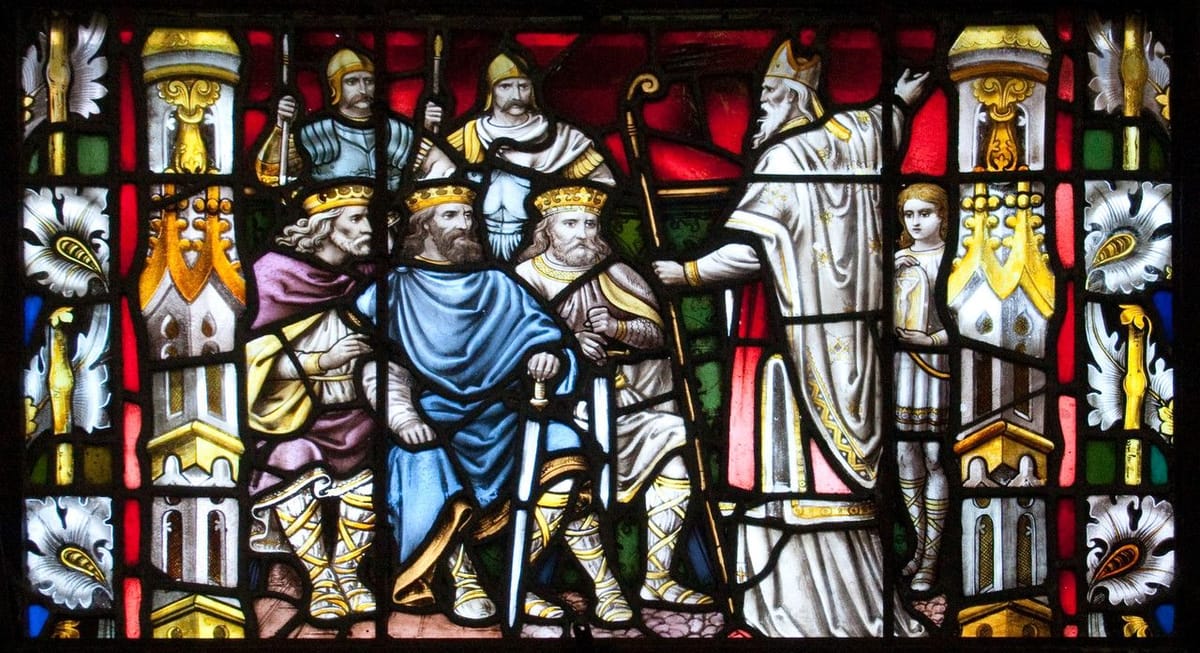Of Kings and Knights - Part 1

In my previous article, I put forward the question – “Are you King Arthur or Sir Lancelot?”. Over the next series of articles, I will relate how I arrived at my answer – and I hope you will join me on my journey. As a point of departure, I’ve identified the different types of “Kings” and “Knights” I’ve worked with. In this article, I focus on the “King” variant. Let me know by way of comment or message if you agree or disagree with some of the descriptions and assessments.
Here is my classification and assessment of Kings -
The “Thor” of Kings –
He has successfully scaled the corporate ladder and is next in line to rule Asgard, erm... Camelot. However, this was done out of necessity and he is super reluctant to take on the responsibility of being King. Walks around with a massive hammer and is eager to engage in any battle – even when his army has the issue under control.
His Knights love him because they know he is the last line of defense but are sometimes annoyed as he gets involved unnecessarily. The people of the Kingdom are not thrilled as he focuses too much on the "military" and does not give priority to day-to-day "Operations".
Assessment: King: 40%, Knight: 65%
The “How Difficult Could It Be?” King –
This is a King that has come through the ranks. Back in the last century, he was actually on the battlefield – coding something as complex as C or Fortran. When his Knights come to him, he does not have much sympathy and sends them back to the battlefield with his favorite book “Finding your Inner Dragon”. This is a “tough-love” King. He figures his Knights will become stronger if he lets them learn lessons on their own – with a little guidance/direction (unfortunately – sometimes irrelevant and misguided).
Although his Knights respect him, they do not readily seek his assistance as they do not want to go back to the “History of Dragons” to solve their current crises. However, as he has seen the battlefield, he is able to see the forest through the trees and is a good King.
Assessment: King: 60%, Knight: 40%
The “I’ve never been a Knight” King –
It is quite rare to find a King in IT who have never seen the battlefield – but I have encountered some in my career. This King defers all battlefield decisions to his Knights – sometimes working with a key Lieutenant as his trusted advisor. However, his Knights know that (i) he will not help much in the midst of a battle and (ii) if unchecked by the Lieutenant, they can pull the wool over the King’s eye to get more time/resources to work on a simple task. (If you have ever given an estimate of 3 days to fix an issue which you know should take a maximum of 3 hours – you’re probably grinning sheepishly now).
However, this is a great ruler. He is in touch with his emotional side and the citizens of Camelot love him as they know they always have a shoulder to cry on. He treats each and every matter of the Kingdom with great care – often at his own personal time and expense.
Assessment: King: 80%, Knight: 0%
The “Balanced” King –
Ahh, this is possibly the hardest King to find – and up until recently, Kingdoms have not placed much focus on developing such Leaders. This is a King who is as comfortable on the battlefield as he is at the Round table. He uses his ability as a King to clear the path for his Knights. However, his Knights know that, given a formidable dragon, they can count on him as an “effective” member of the cavalry.
This is possibly one of the hardest roles – as this individual needs to stay relevant enough with the detail and know when to support his Knights and when to get step in – with enough context to not be a burden.
He treats the citizens of Camelot well. Given that he needs to keep his finger on the pulse of the battlefield and the Kingdom, he does not have the energy or time to wipe away the tears of a crying child. His decisions are generally quick, but fair.
Assessment: King: 75%, Knight: 75%
The “Send me a Raven when its over” King –
This is a King who does not even attempt to gauge the complexities or intricacies of the battlefield, or the Kingdom for that matter. He rose to the elevated position of King because he played the political game and has fought his way through the masses, by shaking hands and kissing babies - to get to the top. No mean feat!
On the face of it, he has won many conquests and has saved the Kingdom on a number of occasions. However, many know that he often (unashamedly) claims the victory of others as his own. However, the positive of this "King" is that he has positioned a Knight to control his conquests and a "Prime Minister" to run the Kingdom – all in the background, of course.
Some readers may argue that this is what a good King is supposed to do. Get the right people in place to do the job. I fully agree – however, it is important to give credit where credit is due. I also believe that empathy comes with understanding. If this Leader is disconnected from the pain of losing a Knight on the battlefield or the challenges of balancing the needs of the Butcher and the Baker, he cannot truly understand his constituents. This style of leadership most often results in factions rather than loyalty. If you’re not in the “right crowd”, you’re in the wrong Kingdom…
Assessment: King: 40%, Knight: 40%
Note: I would like to highlight that my use of the masculine form – King/he/his – is for the purpose of the metaphor in this article and is not meant to isolate or discriminate against women. I am fortunate to know and also have worked with some great Queens (no pun intended) over my career.
Stay tuned, in my next article, I take a shot at classifying "Knights"... :)



